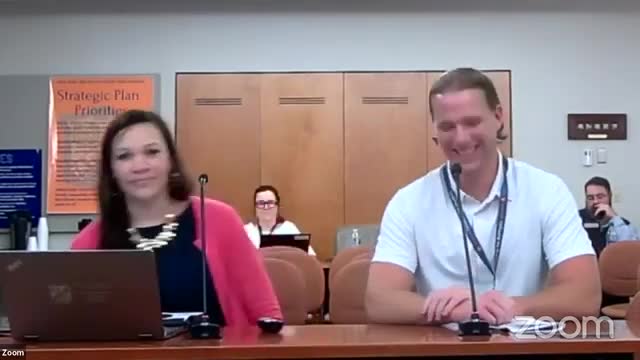Schools revolutionize learning with innovative tech spaces
September 14, 2024 | Oak Park - River Forest SD 200, School Boards, Illinois
This article was created by AI summarizing key points discussed. AI makes mistakes, so for full details and context, please refer to the video of the full meeting. Please report any errors so we can fix them. Report an error »

In a recent government meeting, the focus was on the advancements and initiatives within the instructional technology department, led by Joe, the newly appointed director. This marks his first report since taking on the role last November, and the discussions highlighted the evolving landscape of technology in education.
The meeting emphasized the importance of enhancing student learning experiences through innovative uses of technology. Joe noted the successful implementation of a one-to-one Chromebook initiative eight years ago and the subsequent development of a makerspace and media production studio. These facilities aim to provide students with hands-on opportunities to engage with technology, fostering creativity and practical skills essential for 21st-century learners.
The instructional technology team, which includes two coordinators and a newly created media specialist, is dedicated to professional development for teachers. Recent training sessions have covered topics such as artificial intelligence (AI), gamified learning, and multimedia integration in classrooms. A notable initiative discussed was the \"Magic School\" AI pilot program, which aims to equip students with the skills to effectively use AI tools in their learning processes.
The makerspace serves as a creative hub where students can prototype ideas and engage in project-based learning. It is accessible during school hours and after school, allowing for collaboration between students and teachers. Similarly, the media production room is designed for various creative projects, including podcasting and video production, enabling students to express their learning in diverse formats.
Looking ahead, the department plans to enhance the use of assessment tools and further educate staff on AI applications in education. The overarching goal is to support differentiated instruction and ensure that students are well-prepared for future challenges in a technology-driven world.
The meeting emphasized the importance of enhancing student learning experiences through innovative uses of technology. Joe noted the successful implementation of a one-to-one Chromebook initiative eight years ago and the subsequent development of a makerspace and media production studio. These facilities aim to provide students with hands-on opportunities to engage with technology, fostering creativity and practical skills essential for 21st-century learners.
The instructional technology team, which includes two coordinators and a newly created media specialist, is dedicated to professional development for teachers. Recent training sessions have covered topics such as artificial intelligence (AI), gamified learning, and multimedia integration in classrooms. A notable initiative discussed was the \"Magic School\" AI pilot program, which aims to equip students with the skills to effectively use AI tools in their learning processes.
The makerspace serves as a creative hub where students can prototype ideas and engage in project-based learning. It is accessible during school hours and after school, allowing for collaboration between students and teachers. Similarly, the media production room is designed for various creative projects, including podcasting and video production, enabling students to express their learning in diverse formats.
Looking ahead, the department plans to enhance the use of assessment tools and further educate staff on AI applications in education. The overarching goal is to support differentiated instruction and ensure that students are well-prepared for future challenges in a technology-driven world.
View full meeting
This article is based on a recent meeting—watch the full video and explore the complete transcript for deeper insights into the discussion.
View full meeting
